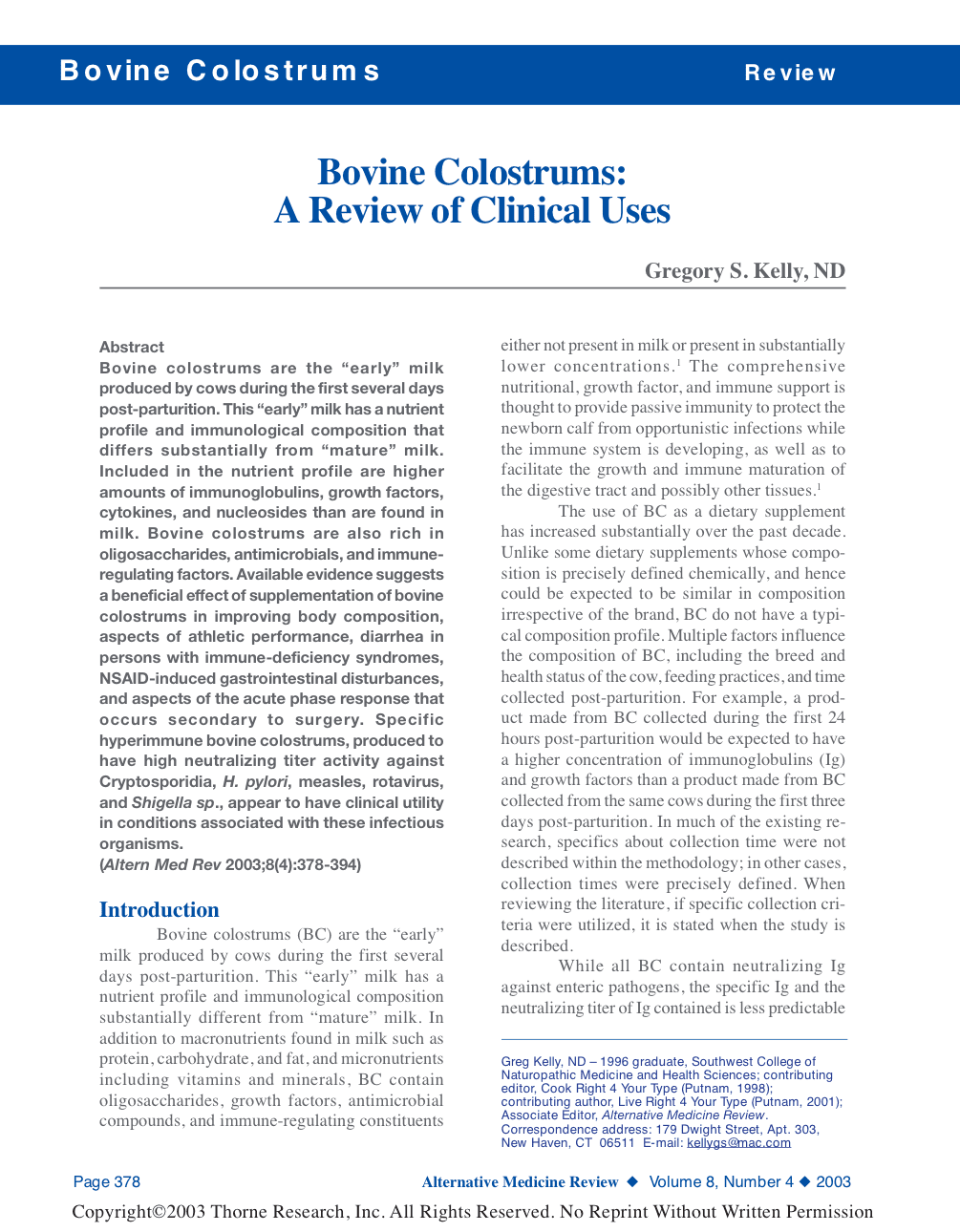Abstract
Bovine colostrums are the “early” milk produced by cows during the first several days post-parturition. This “early” milk has a nutrient profile and immunological composition that differs substantially from “mature” milk. Included in the nutrient profile are higher amounts of immunoglobulins, growth factors, cytokines, and nucleosides than are found in milk. Bovine colostrums are also rich in oligosaccharides, antimicrobials, and immune-regulating factors. Available evidence suggests a beneficial effect of supplementation of bovine colostrums in improving body composition, aspects of athletic performance, diarrhea in persons with immune-deficiency syndromes, NSAID-induced gastrointestinal disturbances, and aspects of the acute phase response that occurs secondary to surgery. Specific hyperimmune bovine colostrums, produced to have high neutralizing titer activity against Cryptosporidia, H. pylori, measles, rotavirus, and Shigella sp., appear to have clinical utility in conditions associated with these infectious organisms. (Altern Med Rev 2003;8(4):378-394)







